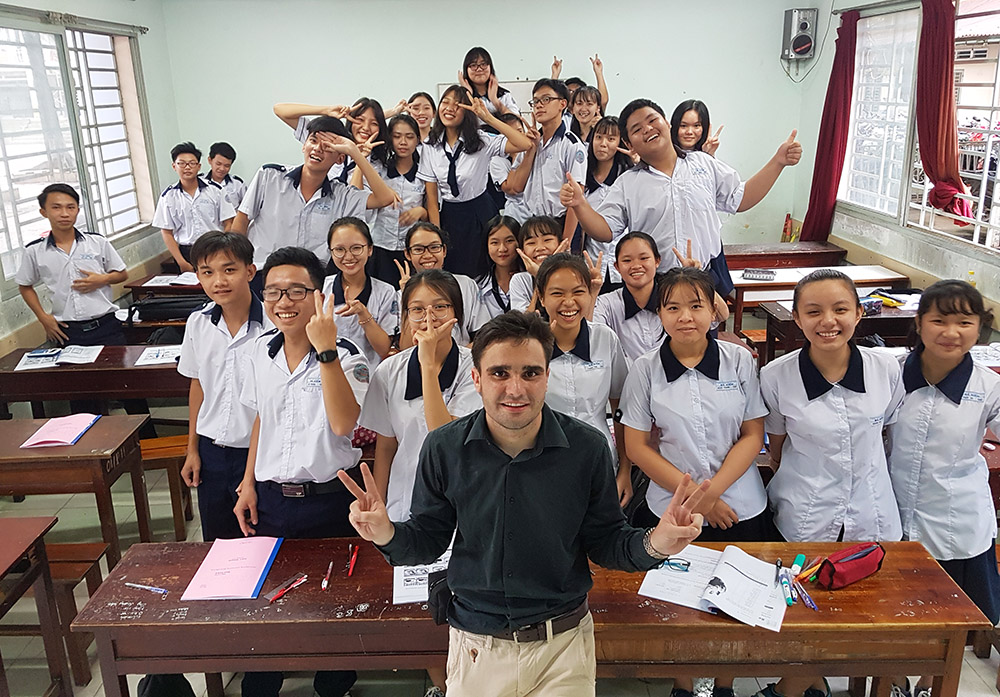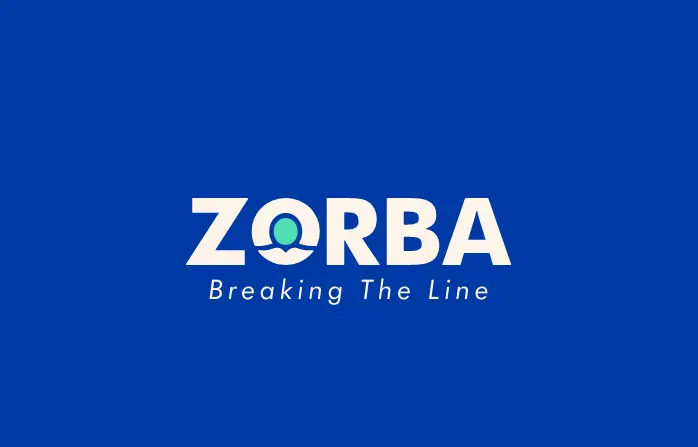Chuyên mục nâng cấp từ vựng được chắt lọc từ bộ Cambridge – IELTS Vocab Booster

Chương 1: CAM 7
TEST 1: READING PASSAGE 2
A The history of human civilisation is entwined with the history of the ways we have learned to manipulate water resources. As towns gradually expanded, water was brought from increasingly remote sources, leading to sophisticated engineering efforts such as dams and aqueducts. At the height of the Roman Empire, nine major systems, with an innovative layout of pipes and well-built sewers, supplied the occupants of Rome with as much water per person as is provided in many parts of the industrial world today.
B During the industrial revolution and population explosion of the 19th and 20th centuries, the demand for water rose dramatically. Unprecedented construction of tens of thousands of monumental engineering projects designed to control floods, protect clean water supplies, and provide water for irrigation and hydropower brought great benefits to hundreds of millions of people. Food production has kept pace with soaring populations mainly because of the expansion of artificial irrigation systems that make possible the growth of 40 % of the world’s food. Nearly one fifth of all the electricity generated worldwide is produced by turbines spun by the power of falling water.
C Yet there is a dark side to this picture: despite our progress, half of the world’s population still suffers, with water services inferior to those available to the ancient Greeks and Romans. As the United Nations report on access to water reiterated in November 2001, more than one billion people lack access to clean drinking water; some two and a half billion do not have adequate sanitation services. Preventable water-related diseases kill an estimated 10,000 to 20,000 children every day, and the latest evidence suggests that we are falling behind in efforts to solve these problems.
D The consequences of our water policies extend beyond jeopardising human health. Tens of millions of people have been forced to move from their homes – often with little warning or compensation – to make way for the reservoirs behind dams. More than 20 % of all freshwater fish species are now threatened or endangered because dams and water withdrawals have destroyed the free-flowing river ecosystems where they thrive. Certain irrigation practices degrade soil quality and reduce agricultural productivity. Groundwater aquifers* are being pumped down faster than they are naturally replenished in parts of India, China, the USA and elsewhere. And disputes over shared water resources have led to violence and continue to raise local, national and even international tensions.
E At the outset of the new millennium, however, the way resource planners think about water is beginning to change. The focus is slowly shifting back to the provision of basic human and environmental needs as top priority – ensuring ‘some for all,’ instead of ‘more for some’. Some water experts are now demanding that existing infrastructure be used in smarter ways rather than building new facilities, which is increasingly considered the option of last, not first, resort. This shift in philosophy has not been universally accepted, and it comes with strong opposition from some established water organisations. Nevertheless, it may be the only way to address successfully the pressing problems of providing everyone with clean water to drink, adequate water to grow food and a life free from preventable water-related illness.
F Fortunately – and unexpectedly – the demand for water is not rising as rapidly as some predicted. As a result, the pressure to build new water infrastructures has diminished over the past two decades. Although population, industrial output and economic productivity have continued to soar in developed nations, the rate at which people withdraw water from aquifers, rivers and lakes has slowed. And in a few parts of the world, demand has actually fallen.
G What explains this remarkable turn of events? Two factors: people have figured out how to use water more efficiently, and communities are rethinking their priorities for water use. Throughout the first three-quarters of the 20th century, the quantity of freshwater consumed per person doubled on average; in the USA, water withdrawals increased tenfold while the population quadrupled. But since 1980, the amount of water consumed per person has actually decreased, thanks to a range of new technologies that help to conserve water in homes and industry. In 1965, for instance, Japan used approximately 13 million gallons of water to produce $1 million of commercial output; by 1989 this had dropped to 3.5 million gallons (even accounting for inflation) – almost a quadrupling of water productivity. In the USA, water withdrawals have fallen by more than 20 % from their peak in 1980.
H On the other hand, dams, aqueducts and other kinds of infrastructure will still have to be built, particularly in developing countries where basic human needs have not been met. But such projects must be built to higher specifications and with more accountability to local people and their environment than in the past. And even in regions where new projects seem warranted, we must find ways to meet demands with fewer resources, respecting ecological criteria and to a smaller budget.
- Giải thích từ vựng
- Irrigation (n) /ˌɪr.ɪˈɡeɪ.ʃən/ sự tưới tiêu
Eg: Dirty irrigation water can spread animal pathogens to fruits and vegetables.
I use drip irrigation on a timer for part of my garden.
Irrigate (v)
- Downward (a) /ˈdaʊn.wəd/ xuống, đi xuống, trở xuống
Eg: The country’s economy is on a downward spiral.
- Entwined (a) /ɪnˈtwaɪnd/ bám chặt lấy nhau, có liên kết chặt chẽ không thể tách rời
Eg: The fates of both countries seem somehow entwined.
For at least 300 years before the 1917 Bolshevik Revolution, the church was inextricably entwined with the rule of the czars.
entwine (v)
- Manipulate (v) /məˈnɪp.jə.leɪt/ vận dụng bằng tay, thao tác/ thao túng
Eg: The controls on the machine are quite hard to manipulate.
- Expand (v) /ɪkˈspænd/ mở rộng, phát triển
Eg: The air in the balloon expands when heated.
They expanded their retail operations during the 1980s.
I don’t think we should expand our business in the current economic climate.
Một số từ đồng nghĩa:
- Increase We need to increase production to meet demand.
- Grow The number of people living alone grows each year.
- Rise Prices rose by 10 per cent.
- Go up House prices keep going up.
- Escalate Crime in the city has escalated in recent weeks.
- Remote (a) /rɪˈməʊt/ xa xôi, hẻo lánh
Eg: Australia is large, and remote from the great centres of population of the world.
- Sophisticated (a) /səˈfɪs.tɪ.keɪ.tɪd/ tinh vi, phức tạp
Eg: I think a more sophisticated approach is needed to solve this problem.
These are among the most sophisticated weapons in the world.
She certainly appeared very sophisticated to me.
- At the height of sth: ở thời kỳ đỉnh cao của….
Eg: At the height of the violence/crisis we were left without any help.
- Occupant (n) /ˈɒk.jə.pənt/ người chiếm giữ, kẻ chiếm đóng, người sống ở một nơi cụ thể
Eg: The previous occupants were an Italian family.
- Explosion (n) /ɪkˈspləʊ.ʒən/ sự bùng nổ (gia tăng nhanh chóng)
Eg: The government has had to take measures to halt the population explosion.
Auto dealers report an explosion of interest in family-style vans.
- Keep pace with (phrasal verb) theo kịp, sánh kịp
Eg: She found it hard to keep pace with him as he strode off.
The younger children struggled to keep pace with the older ones.
- Soaring (a) bay vút lên, tăng lên nhanh chóng
Eg:The soaring price of natural gas is a serious concern, since many power plants are fuelled by it.
Rents are soaring while pay remains steady.
Một số từ đồng nghĩa:
- high High temperatures are set to continue into next week.
- high in This cereal is high in fibre and nutrients.
- stratospheric Home prices are stratospheric around here!
- Artificial (a) /ˌɑː.tɪˈfɪʃ.əl/ nhân tạo
Eg: Her bouquet was made of artificial flowers.
Một số từ đồng nghĩa:
- synthetic The tyres are made with synthetic rubber.
- man-made Nylon is a man-made fibre.
- Inferior (a) /ɪnˈfɪə.ri.ər/ thấp hơn, kém; thấp kém, tồi
Eg: These products are inferior to those we bought last year.
Collocation
- be inferior to sth
Một số từ đồng nghĩa:
- bad The food wasn’t as bad as I’d expected.
- poor Their efforts produced extremely poor results.
- low/poor/bad quality Their sausages are made with low-quality meat.
- mediocre The striker has been dropped after a mediocre performance.
- Access (n) /ˈæk.ses/ lối vào, cửa vào, đường vào/ sự tới gần
Eg: The only access to the village is by boat.
The main access to the building is at the side.
Collocation
- access to sth
- Sanitation (n) /ˌsæn.ɪˈteɪ.ʃən/ sự cải thiện điều kiện vệ sinh/ hệ thống vệ sinh
Eg: Many illnesses in these temporary refugee camps are the result of inadequate sanitation.
- Jeopardise (v) /ˈdʒep.ə.daɪz/ nguy hại, gây nguy hiểm
Eg: She knew that by failing her finals she could jeopardize her whole future.
The rate increase may jeopardize economic recovery.
- Make way for sth: tạo không gian/ tạo cơ hội cho
Eg: Some beautiful old buildings were torn down to make way for the new parking garage.
Tropical forest is felled to make way for grassland.
- Withdrawal (n) sự rút khỏi, sự rút ra
Eg: Doctors demanded the withdrawal of the drug (from the market) after several cases of dangerous side-effects were reported.
Her sudden withdrawal from the championship caused a lot of press speculation about her health.
- Thrive(v) /θraɪv/ thịnh vượng, phát đạt, phát triển mạnh
Eg: His business thrived in the years before the war.
Collocation
- thrive on sth Some employees thrive on the challenge of intense workloads.
- Infrastructure (n) /ˈɪn.frəˌstrʌk.tʃər/ cơ sở hạ tầng
Eg: The industry was accused of having invested little in workers, plant or infrastructure.
Collocation
build/create/develop an infrastructure
- Universally (adv) /ˌjuː.nɪˈvɜː.səl.i/ phổ thông, phổ biến
Eg: It is universally acknowledged as one of the best new cars to be produced in recent years.
He is universally recognised as the world’s greatest living guitarist.
His theory was quite controversial and not universally accepted.
- Free (from sth) (a) không bị, khỏi phải, thoát được
Eg: The organization is a charitable enterprise, so it is free from tax worldwide.
- Diminish (v) /dɪˈmɪn.ɪʃ/ bớt, giảm, hạ bớt, giảm bớt; thu nhỏ
Eg: I don’t want to diminish her achievements, but she did have a lot of help.
These memories will not be diminished by time.
What he did has seriously diminished him in many people’s eyes.
diminution (n)
- Figure out (phrasal verb) tìm ra/ hiểu, giải quyết điều gì đó.
Eg: If they know the cause of the problem, they might be able to figure out how to prevent it happening again.
It takes most people some time to figure out new software.
Can you figure out how to close this cabinet?
- Quadruple (v) /kwɒdˈruː.pəl/ gấp bốn
Eg: The number of students at the college has quadrupled in the last ten years.
- Output (n) /ˈaʊt.pʊt/ sản lượng
Eg: We have tripled our output over the past two years.
- Inflation (n) /ɪnˈfleɪ.ʃən/ sự lạm phát
Eg: The control of inflation is a key component of the government’s economic policy.
There has been an alarming rise in the rate of inflation.
- Peak (n) /piːk/ đỉnh cao nhất, cao điểm
Eg: Prices reach a peak during August.
- Accountability (n) /əˌkaʊn.təˈbɪl.ə.ti/ sự trách nhiệm
Eg: There were furious demands for greater police accountability.
Accountability is important these days, and managers aren’t always willing to adopt risky strategies.
accountable (a)
- Imitate (v) /ˈɪm.ɪ.teɪt/ làm theo; mô phỏng, phỏng mẫu, bắt chước
Eg: Some of the younger pop bands try to imitate their musical heroes from the past.
- Domestic (a) /dəˈmes.tɪk/ trong nước, nội địa
Eg: The prime minister’s globetrotting has led to accusations that he is ignoring domestic problems.
The domestic market is still depressed, but demand abroad is picking up.
The reduction of crime levels is the centrepiece of the president’s domestic policies.
- Ownership (n) /ˈəʊ.nə.ʃɪp/ quyền sở hữu
Eg: Do you have any proof of ownership of this car?
Collocation
- under sb’s ownership The business has been under the same ownership for 44 years.
- home/property ownership The spiralling cost of housing has pushed home ownership beyond the reach of many people.
- share/stock ownership The organization promotes wider share ownership.
- take/acquire/retain ownership of sth Earlier this year the group took 51% ownership of the financial services unit.
- Luyện tập
Bài 1: Chọn từ trong khung để hoàn thành các câu bên dưới
| figure out | height | universally | keep pace | expand |
| make way | entwined | sophisticated | downward | irrigation |
- New figures show that the …………………………………. pressure on annuity rates is likely to get worse in the future.
- An article describes the ………………………………….. histories of the rival city newspapers.
- She is still at the ……………………………….. of her powers.
- The company is struggling to ……………………………………………….. with changes in the market.
- Several houses were demolished to ………………………………………… for a new road.
- Can you ……………………………………. how to close this cabinet?
- He was almost ………………………………… acclaimed for his decency and his modesty.
- Green roofs may need ……………………………………………….. during a hot summer.
- In their second album, the band tried to ……………………………….. their stylistic range.
- The little we do know about the people who lived here suggests they had a very ……………………………………………… society.
Bài 2: Chọn đáp án đúng để điền vào chỗ trống
- The wheelchair is designed to be easy to …………………………….. A.expand B. manipulate
- They live in a …………..………… corner of Scotland, miles from the nearest shop. A. remote B. downward
- The apartment had been left in a bad condition by the previous ………………….. A. irrigation B. occupant
- If no action is taken, the country runs the risk of a social …………………………… A.explosion B. sanitation
- This scandal could seriously ………………..……. his chances of being re-elected. A.jeopardize B. expand
- Industries such as water, telecoms, and insurance have been …………………… A.manipulating B. thriving
- He had made several large ……………………………….. from his bank account A.withdrawals B. sanitations
- Red Cross officials were allowed ……………………………. to the prison for the first time a few days ago. A.occupant B. access
- It was clear the group were regarded as intellectually ……………………………. A.inferior B. soa ring
- A lack of clean water and …………………………………. were the main problems. A.explosion B. Animation
- There were still isolated moments of …………………………. hope A.soaring B. downward
- The match will be played on an ………………………………. surface. A.artificial B. inferior
- Investors can diversify their holdings in order to ………………………… risk. A.quadruple B. diminish
- If they want to increase ………………………………. from the factory, they’ll have to modernize. A.inflation B. Outlook
- The main way of ensuring public ……………………………… is through select committees. A.inflation B. accountability
- We saw a victory by an athlete at the very ………………………… of her fitness and career A.peak B. withdrawal
- More money is needed to maintain the city’s ……………………………. A.infrastructure B. sanitation
- The organization wants to remain ……………………….. from government control. A.soaring B. free
- We expect to ……………………………………. our profits this year. A.quadruple B. diminish
- Managing the economy is a complex equation of controlling ……………………….. and reducing unemployment. A.inflation B. access
- As the NEC’s deputy for ………………………………………. policy issues, Sperling has functioned as both policy wonk and political guru. A.artificial B. Acoustic
- My four-year-old daughter is always trying to ………………………. her older sister. A.imitate B. Quad
- State-owned railways were taken into private …………………………………………. A:accountability B. Premiership
Bài 1:
1.downward 2. entwined 3. height 4. keep pace 5. make way
- figure out 7. universally 8. irrigation 9. expand 10. sophisticated
Bài 2:
1.B 2. A 3. B 4. A 5. A
- B 7. A 8. B 9. A 10. B
- A 12. A 13. B 14. B 15.B
- A 17. A 18.B 19. A 20. A
- B 22. A 23. B
ZORBA – Luyện thi IELTS cùng chuyên gia.














